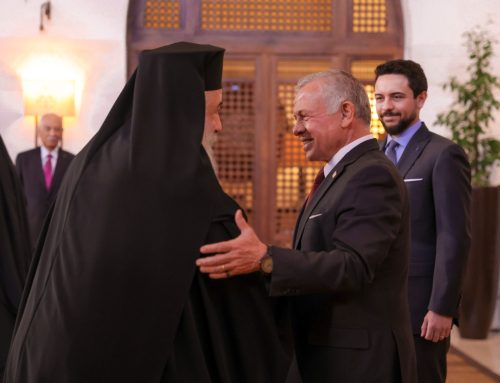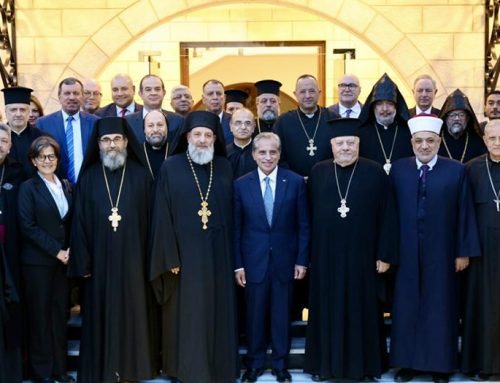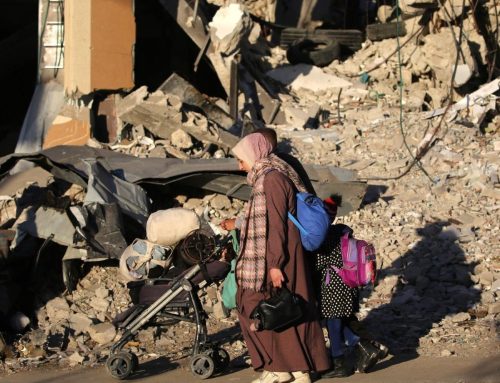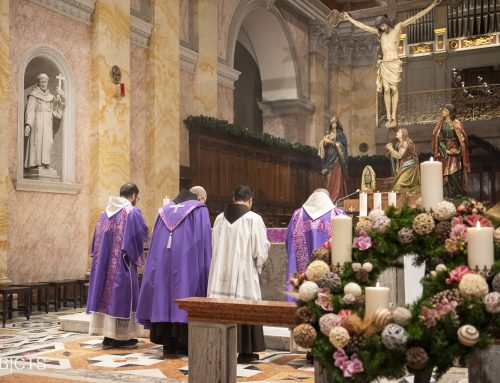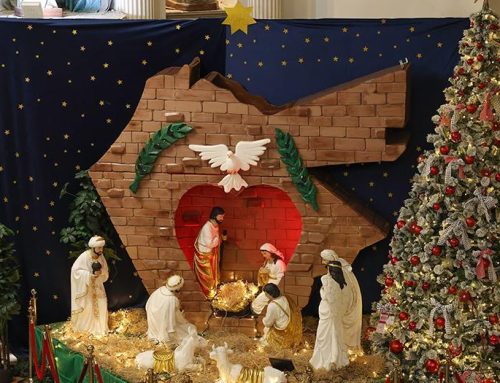Roughly twenty-four hours after Pope Francis publicly charged that Cardinal Pierbattista Pizzaballa, the Latin Rite Patriarch of Jerusalem, had been denied entry into the Gaza Strip, Pizzaballa made a regularly scheduled Christmas visit to the lone Catholic parish in Gaza, saying Mass and celebrating a handful of confirmations and first communions.
Pope Francis’s comments came in impromptu remarks at the beginning of his traditional end-of-the-year address to members of the Roman Curia.
“Yesterday,” the pope said, “the patriarch was not allowed to enter Gaza as they had promised,” referring to Israeli authorities.
That claim brought a swift denial from the Israeli Embassy to the Holy See, which posted a statement on the social media platform X.
“Contrary to false allegations published in the media today, the request made by the Latin Patriarch of Jerusalem, Cardinal Pierbattista Pizzaballa, to enter Gaza was granted, as has been the case in the past and according to his preference,” it said.
(The allusion to media accounts was to press coverage of the pope’s comment to the curia earlier in the day.)
On Sunday, the embassy posted pictures of Pizzaballa’s delegation passing through a checkpoint at the Erez Crossing located at the northern end of the Gaza Strip. It also noted that last Thursday, humanitarian aid was delivered to the Christian community in Gaza on behalf of the Patriarch’s delegation.
“The State of Israel takes steps in cooperation with the Christian community in order to ease conditions for the Christian population of the Gaza Strip, including coordination of departures from the Gaza Strip to third countries,” the Dec. 22 post said.
The confusion over Pizzaballa was not the only element of the pontiff’s rhetoric on Gaza Saturday which proved controversial.
Noting that the day before, Israeli airstrikes killed an estimated 25 Palestinians, including seven children, Pope Francis said, “This is not war. This is cruelty. … I want to say this, because it touches my heart.”
That remark, too, brought a vigorous protest from Israeli officials, in this case from the Israeli Foreign Ministry.
“Cruelty is terrorists hiding behind children while trying to murder Israeli children; cruelty is holding 100 hostages for 442 days, including a baby and children, by terrorists and abusing them,” the Foreign Ministry said in a statement.
“Unfortunately, the Pope has chosen to ignore all of this, as well as the fact that Israel’s actions have targeted terrorists who used children as human shields. The Pope’s remarks are particularly disappointing as they are disconnected from the true and factual context of Israel’s fight against jihadist terrorism — a multi-front war that was forced upon it starting on October 7,” it said.
“The death of any innocent person in a war is a tragedy,” the statement said. “Israel makes extraordinary efforts to prevent harm to innocents, while Hamas makes extraordinary efforts to increase harm to Palestinian civilians. The blame should be directed solely at the terrorists, not at the democracy defending itself against them.”
“Enough with the double standards and the singling out of the Jewish state and its people,” it said.
The war of words was the latest front in steadily mounting tensions in Israeli-Vatican relations, as well as Jewish-Catholic relations, since the beginning of the Gaza conflict.
Just days ago, Israeli media outlets and Jewish leaders alike objected when a Nativity Set erected in the Vatican’s Audience Hall, presented to the pontiff as a gift from the city of Bethlehem, showed the infant Jesus resting on a keffiyeh, a checkered black-and-white headscarf that’s widely known as a symbol of Palestinian resistance.
The scene with the keffiyeh was quickly removed, but not before images of Francis in a wheelchair gazing upon the tableau had already made the rounds.
As for Pizzaballa, he attempted to bring a message of hope to the beleaguered Catholic community in Gaza, in a homily which was streamed live on Facebook.
“You must not lose hope, because Christmas is the festival of hope, because the light of Christ is with you,” he said. “Sooner or later, the war will end. When it does, we’ll rebuild everything, your schools, your hospitals, your homes.”
“You can be sure that we’ll never leave you alone, and we’ll do everything we can to support you,” Pizzaballa said. “You must remain resilient, and full of strength.”
Pizzaballa arrived in Gaza in a caravan of vehicles carrying the logo of Caritas Jerusalem and flying the Vatican flag. Roughly 500 Christians have taken refuge in the Catholic parish of the Holy Family in Gaza City, while another 200 are sheltering in a Greek Orthodox church.
Pizzaballa then left Gaza to make his way to Bethlehem, where he will celebrate the traditional liturgy of Christmas eve on Tuesday.
By Crux Staff


